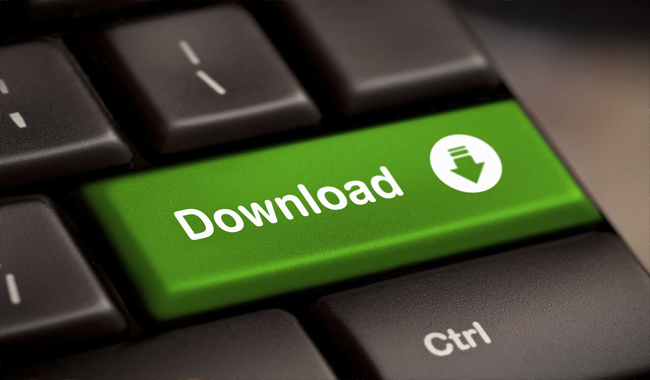A software is said to be free when the user has the privilege and freedom to run the program for any purpose, to study and to change the program as desired, to redistribute copies to others, and to distribute the modified version of the program for free. These four freedoms are usually denoted by freedom 0, 1, 2 and 3 respectively. (GNU, 2012) If a software fails to guarantee one or more of these freedoms, it will not be qualify as a free software. For all of these freedoms to be guaranteed, a user must have access to the source code (computer instructions) that specify what actions to be performed by the computer when running the program. Simply making the source code of the software accusable to everyone makes it public domain software, in which cases uncooperative people may do some modification to it and convert it to proprietary software (copyrighted software). To overcome this challenge, the GNU project which is the first free software mass collaboration project comes up with the idea of creating a license which guaranties all the freedoms to the user while preventing it from being converted to proprietary. This license is known as copyleft. Copyleft license not only guaranties all the freedom to the user, but also says that the user who wants to redistribute a software after modification or without modification must give the same freedom to others. (Stallman R. M., 2010)
There are several types of licenses in relation to free software. These include GNU General Public License, Creative Commons (CC) and Apache License. GNU General Public License (GNU GPL) is the most widely used free software license which guarantees the above listed freedom 0, 1, 2 and 3 to the user. It is also copyleft license which means the modified new version can only be distributed under the same terms of license. It was originally written by Richard Stallman in 1989. Every time the license needs any amendment to address some perceived problems new version is released. The latest version of GNU GPL is Version 3, written on 29 June 2007. (GNU O. S. Licenses, 2007)
Creative Commons (CC) is a license for all type of creative work. When someone come up with any type of creative work, that person will automatically own the ‘all rights reserved’ copyright to that creativity. This copyright restricts others from using you creative work without getting permission from the person created it. Sometimes this restriction will be hassle when the creative work needed to be shared and used by others while without affecting its ownership. Creative Commons(CC) comes to solve this problem by giving the creator simple mark of license to their creative works with the freedom they intended to carry. CC licenses have major four conditions for licenses called Attribution (BY), which requires attribution to the original creator, Share Alike (SA), which allows modification of the original under the same license, Non-Commercial (NC), which does not allow for commercial use, and No Derivative Work (ND), which allow only the original work without any modification. Based on combination of these conditions CC license has total of six different licenses: Attribution (CC BY), Attribution Share Alike (CC BY-SA), Attribution No Derivatives (CC BY-ND), Attribution Non-Commercial (CC BY-NC), Attribution Non-Commercial Share Alike (CC BY-NC-SA) and Attribution Non-Commercial No Derivatives (CC BY-NC-ND). (Commons Creative, Licenses)
Apache License is similar to GNU General Public License which allows the user to have the freedom to run the software for any purpose, to modify it, to redistribute it and to distribute its modified version under the same terms of license. It is authored by the Apache Software Foundation (ASF). The original Apache License Version 1.0 applies only to the older version of Apache packages. The latest version which is Version 2.0, approved in 2004, is compatible with Version 3 of GNU GPL. And it makes the license easier even for non-ASF projects. (ASF, 2012)
There are several established free software products that are very helpful for day-to-day tasks when dealing with web surfing activities, media related activities and storage management activities. The major free operating systems and desktop environments, Linux, Ubuntu and Google Chrome OS. For graphics and multimedia, Blender and Audacity, from Office software, OpenOffice.org, PDF Creator. From Internet related software, Apache webserver, BitTorrent. These and other similar free softwares are helping many individuals, corporations and institutions because there are group of people who strongly believe that the freedom of sharing software and knowledge is as crucial as freedom of speech for the development of the community. Retrospectively the Internet, where every other development revolves around, is driven by the idea of free software. Thus proper licensing of the free software is vital to keep the free software movement going.
ASF. (2012). Licenses. Retrieved March 16, 2013, from The Apache Software Foundation: http://www.apache.org/licenses/
Commons Creative, L. (2010). Licenses. Retrieved March 17, 2013, from Creative Commons: http://creativecommons.org/licenses/
Free Software Foundation, I. (2007). Licenses. Retrieved March 19, 2013, from GNU Operating System: http://www.gnu.org/licenses/gpl.html
GNU O. S. Licenses. (2007). Licenses. Retrieved March 19, 2013, from GNU Operating System: http://www.gnu.org/licenses/gpl.html
GNU, O. S. (2012). Philosophy. Retrieved March 15, 2013, from GNU Operating Sysem: http://www.gnu.org/philosophy/free-sw.html
Stallman, R. M. (2010). Free Software, Free Society: Selected eassays of Richard M. Stallman. (2, Ed.) Free Software Foundation.
Stallman, R. (2009). Why “Open Source” Misses the point of Free Software. Communications of the ACM , 52 (6), 31.[/toggle][/accordian]

